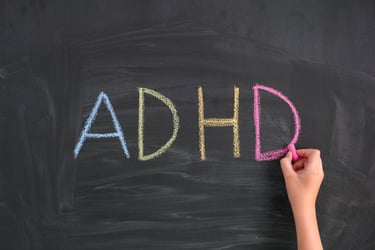eStoreRx™
Online Supplement Dispensary
eStoreRx™ is an easy direct-to-patient ordering & fulfilment program for lifelong wellness.
For over 40 years, Biotics Research Corporation has revolutionized the nutritional supplement industry by utilizing “The Best of Science and Nature”. Combining nature’s principles with scientific ingenuity, our products magnify the nutritional
eStoreRx™ is an easy direct-to-patient ordering & fulfilment program for lifelong wellness.
Biotics Research is proud to expand our commitment to education with the Wellness Unfiltered Pro Podcast. Each episode delves into key health topics and the clinical applications of our premier products. Through candid, insightful conversations, our team offers practical guidance to keep you informed and empowered as a healthcare professional.
February 12 2026
The results of a randomized, double-blind, placebo-controlled trial describing the effects of taurine supplementation on blood pressure and vascular f...
 In a meta-analysis review of both randomized controlled trials (RCT) and case-control studies, the effects of omega-3 (n-3) polyunsaturated fatty acids (PUFAs) on both clinical symptoms and cognition in children and adolescent with ADHD was assessed. The RCT reviewed 534 youths with ADHD, supplemented with omega-3 polyunsaturated fatty acids. Improved clinical symptoms of ADHD (p<0.0001) was demonstrated in this group. In the three RCTs (n=214) ADHD diagnosed youths, supplemented with omega-3 polyunsaturated fatty acids were also demonstrated to “improve cognitive measures associated with attention (g=1.09, p=0.001)”. It was also observed that both children and adults diagnosed with ADHD had lower levels of n-3 PUFAs, “DHA (seven studies, n=412, g=−0.76, p=0.0002), EPA (seven studies, n=468, g=−0.38, p=0.0008), and total n-3 PUFAs (six studies, n=396, g=−0.58, p=0.0001).” It was concluded that n-3 PUFA supplementation “improve(d) clinical symptoms and cognitive performances in children and adolescents with ADHD,” and thus substantiates the use of omega-3 fatty acid in both of these groups with ADHD.
In a meta-analysis review of both randomized controlled trials (RCT) and case-control studies, the effects of omega-3 (n-3) polyunsaturated fatty acids (PUFAs) on both clinical symptoms and cognition in children and adolescent with ADHD was assessed. The RCT reviewed 534 youths with ADHD, supplemented with omega-3 polyunsaturated fatty acids. Improved clinical symptoms of ADHD (p<0.0001) was demonstrated in this group. In the three RCTs (n=214) ADHD diagnosed youths, supplemented with omega-3 polyunsaturated fatty acids were also demonstrated to “improve cognitive measures associated with attention (g=1.09, p=0.001)”. It was also observed that both children and adults diagnosed with ADHD had lower levels of n-3 PUFAs, “DHA (seven studies, n=412, g=−0.76, p=0.0002), EPA (seven studies, n=468, g=−0.38, p=0.0008), and total n-3 PUFAs (six studies, n=396, g=−0.58, p=0.0001).” It was concluded that n-3 PUFA supplementation “improve(d) clinical symptoms and cognitive performances in children and adolescents with ADHD,” and thus substantiates the use of omega-3 fatty acid in both of these groups with ADHD.
Chang J-C, Su K-P, Mondelli V, Pariante CM. Omega-3 Polyunsaturated Fatty Acids in Youths with Attention Deficit Hyperactivity Disorder (ADHD): A Systematic Review and Meta-Analysis of Clinical Trials and Biological Studies. Neuropsychopharmacology. (25 July 2017) | doi:10.1038/npp.2017.160.\r\nPublished online ahead of print.
Submit this form and you'll receive our latest news and updates.
*These statements have not been evaluated by the Food and Drug Administration. This product has not intended to diagnose, treat, cure, or prevent any disease.
© 2025 Biotics Research Corporation - All Rights Reserved
Submit your comment